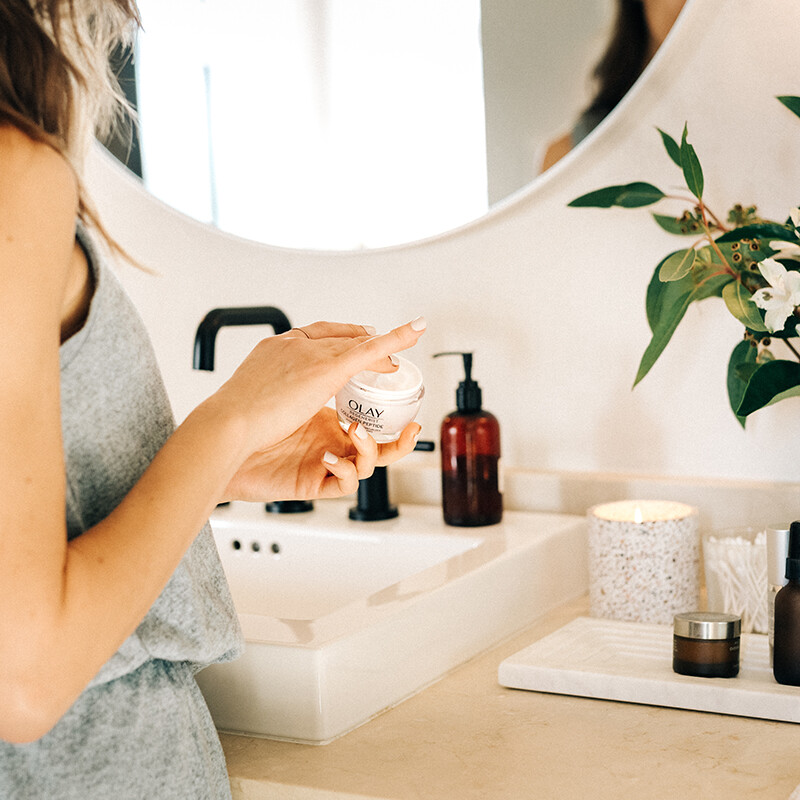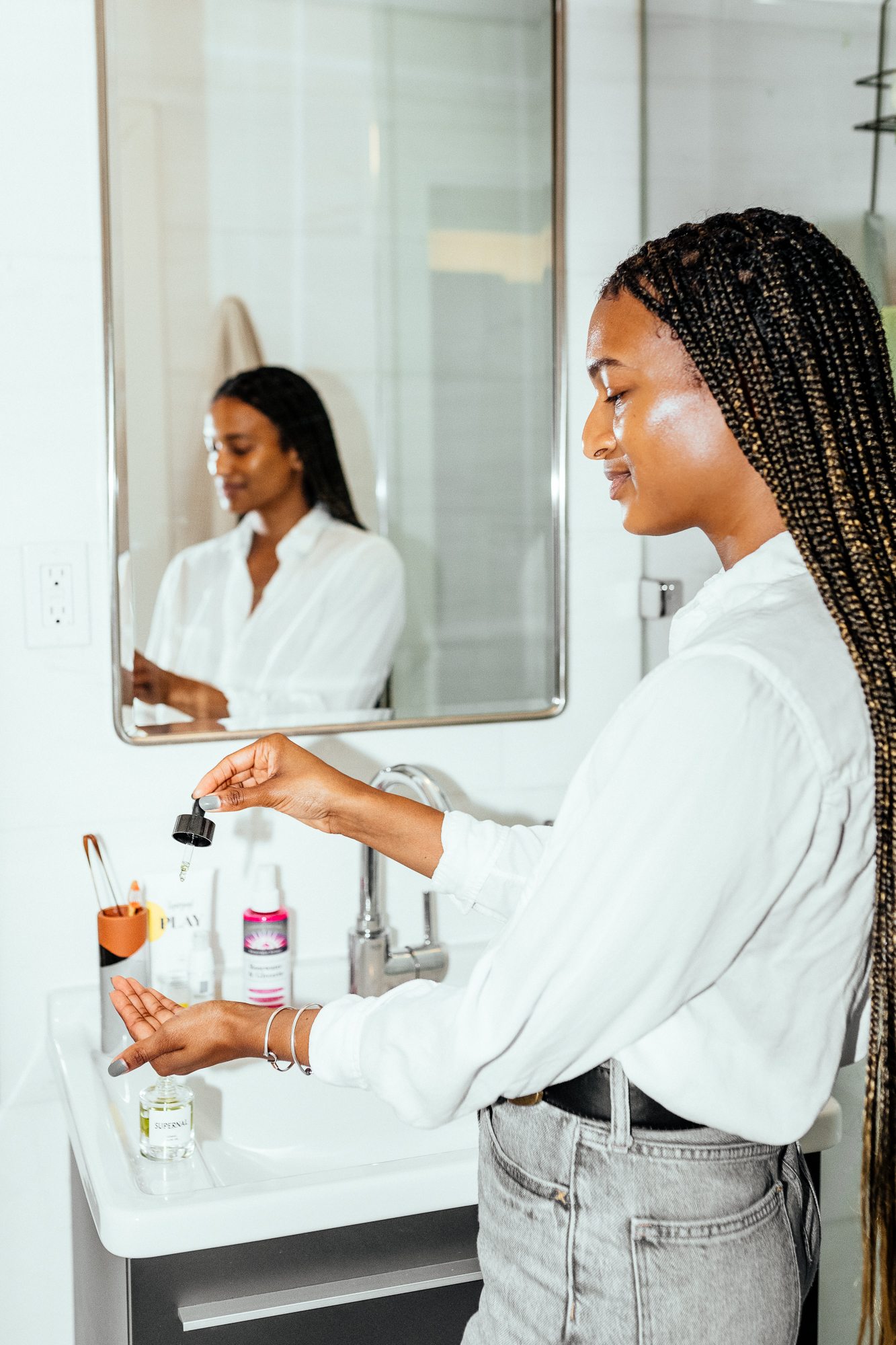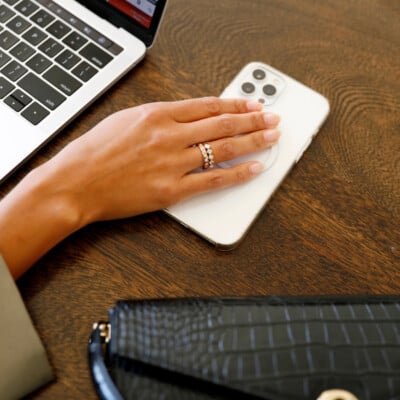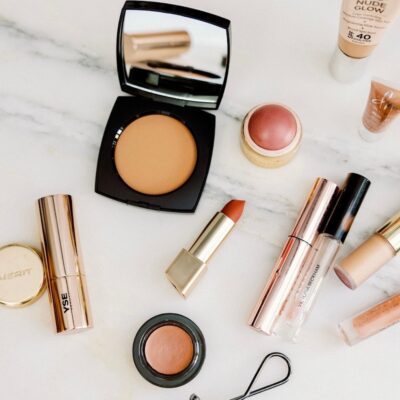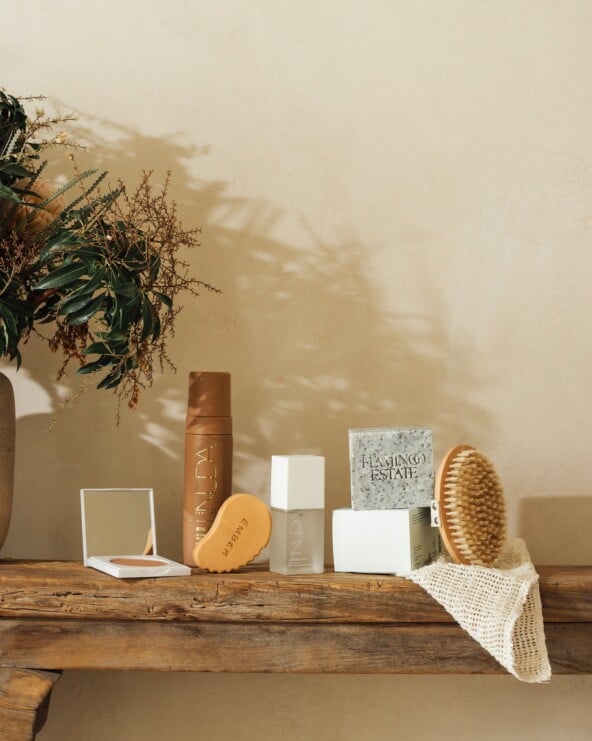Recently, skincare enthusiasm has moved from obsessing over products that seem to offer quick results, like peels, acids, and retinoids, to the intentional and slower process of nurturing our skin. In the quest for clean glowing skin (dare we say, unrealistically filter-like) we have overdone it, resulting in exactly what we’re trying to avoid—inflamed and irritated skin and a compromised skin barrier. Which can lead to a vicious cycle.
Your skin feels rough, inflamed, and maybe has breakouts, so it feels like the solution is to add more products. More exfoliating acids to clear out clogged pores, more retinol to increase cell turnover, more serums to solve discoloration and rough patches, until your skin says enough.
These items may work for a bit, but over time can break down the skin barrier leading to inflamed and irritated skin.
While those products have their place, it turns out, too much of a good thing is definitely a thing when it comes to skincare. On top of that, our skin barrier can be impacted by non-product-related things like stress, UV, pollution, and more. Which is all the more reason to be sure your products are helping and protecting, not hurting.
If you’re wondering what exactly your skin barrier is, how to tell if yours is needing some help and what to do about it, we’ve got answers. We chatted with Dr. Elizabeth Geddes Bruce, board-certified dermatologist and a favorite around here at Camille Styles, to learn everything we didn’t think we needed to know about the skin barrier.

What is the skin barrier and its function?
Your skin is composed of several layers, but when people reference the skin barrier they are usually referring to the outermost layer of our skin, the epidermis or moisture barrier. It has many amazing functions, but its number one job is to protect the inside of your body from the outside world of pollutants, germs, and other harmful agents. Additionally, it keeps good things, like moisture and hydration, in.
How do I protect my skin barrier?
Your skin barrier is pretty self-sufficient and does a good job regenerating as needed. However, you do want to prioritize the protection of your skin barrier because it is your immune system’s first line of defense. It’s also crucial for your production of vitamin D, an essential vitamin for health. Dr. Geddes-Bruce suggests on a basic level to protect it from serious sunburns (by wearing protective clothing or sunscreen), and keep it well moisturized.
 What can cause a damaged skin barrier?
What can cause a damaged skin barrier?
While your skin barrier is quite good at its job, it can also be easily compromised. While stress, pollution, and UV exposure contribute to damage, a lot of the damage comes from over-exfoliating and stripping your skin of its natural oils with overuse of things like acids, peels, harsh cleansers, and retinoids. Most people can tolerate a variety of these products in their skincare routine and they certainly offer benefits for your skin, but here’s an example of how someone might overdo it:
You use a high dose retinol every night, a face wash, toner and moisturizer all with salicycic acid as their active ingredient and azelic acid and vitamin c serums layered over your skin in the morning. All good things, but your skin might be saying, too much!
And for some, too much might just mean using some kind of acid every night rather than every couple of nights. Dr. Geddes-Bruce sees many clients that are experiencing skin barrier damage simply from the overuse of active ingredients. It’s not that you can’t use these ingredients, but chatting with a professional, can help you understand how to optimize what you’re using for healthy skin and maximum results.
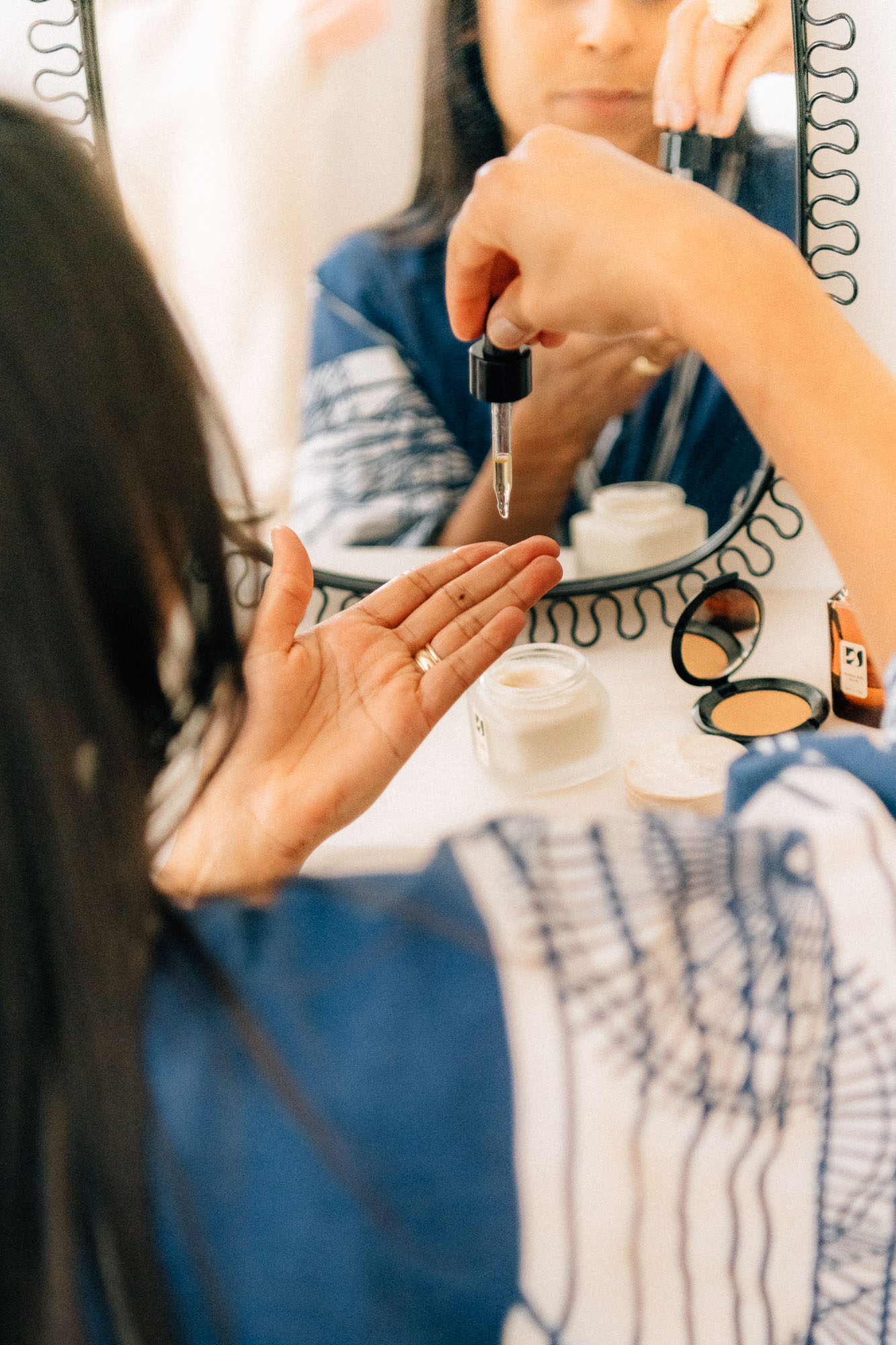
What does a damaged skin barrier look like and what are the symptoms?
A damaged skin barrier can express itself in a variety of ways, but at the core of the issue is water loss. The good news is, it’s pretty easy to spot! If you’re curious what to look for, Dr. Geddes-Bruce explains that it often appears dry and flakey, it can be itchy or painful, and feel rough to the touch.
Breakouts and inflamed red skin might also be a clue that your skin barrier is damaged. Also, if your skin is burning and stinging when applying non-active products, that’s a pretty good sign your skin is compromised.
How do I repair the skin barrier once it’s damaged?
When healing your skin barrier, less is definitely more. Take a couple of weeks off of active ingredients like acids, peels, retinoids, and vitamin C. “Especially avoid products with harsher chemicals designed to treat acne, exfoliate, or help with aging skin,” Dr. Geddes-Bruce suggests. She recommends using moisturizing lotions or ointments that contain ceramides to help restore and replenish.
Once you’re ready to add an active back in or try a new product, go slow and introduce one at a time. Give it three to four weeks before adding more, especially if you have sensitive skin.
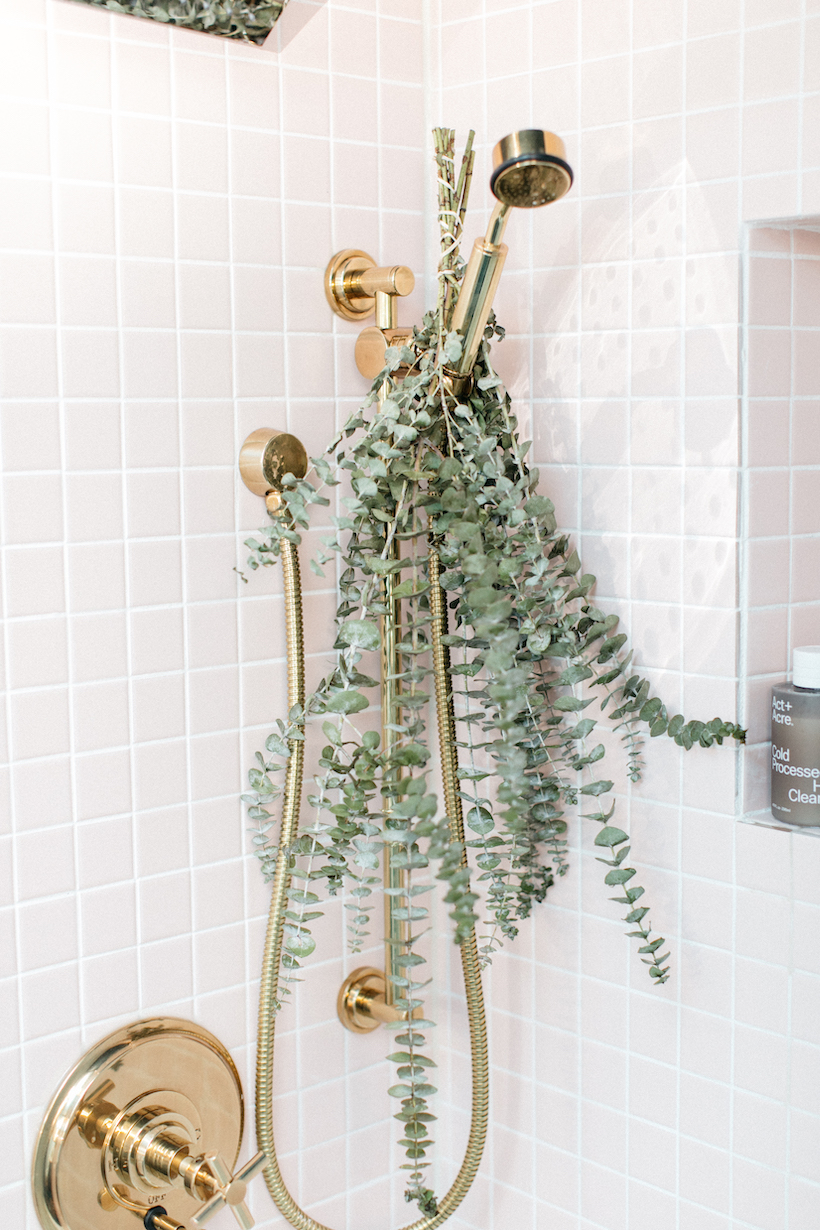
Can you heal your skin barrier without products?
“Possibly!” says Dr. Geddes-Bruce. “The skin does a fantastic job of healing on its own as long as you avoid further irritation, but you’ll speed up the process with gentle skincare.” Your skin does need time to heal, so be gentle with it, but there are a few things you can do to support the skin healing process without products.
Dr. Geddes-Bruce’s tips:
- Avoid long, hot showers or baths
- Moisturize liberally and frequently
- Eat a diet with plenty of healthy fats, antioxidants, and trace minerals
- Consider eating a few tablespoons of hempseed oil daily
Are there treatments I should get if I have a compromised barrier?
Since a compromised barrier can express itself in a few ways, fitting treatments depend on the circumstance. In this case, Dr. Geddes-Bruce says it’s best to consult with an expert. On top of getting targeted advice for your specific skin concerns, an expert can curate your skincare routine to be sure what you’re using is going to help and not hurt your skin as it’s healing. A goal-directed skincare routine will help your barrier in the long run!


